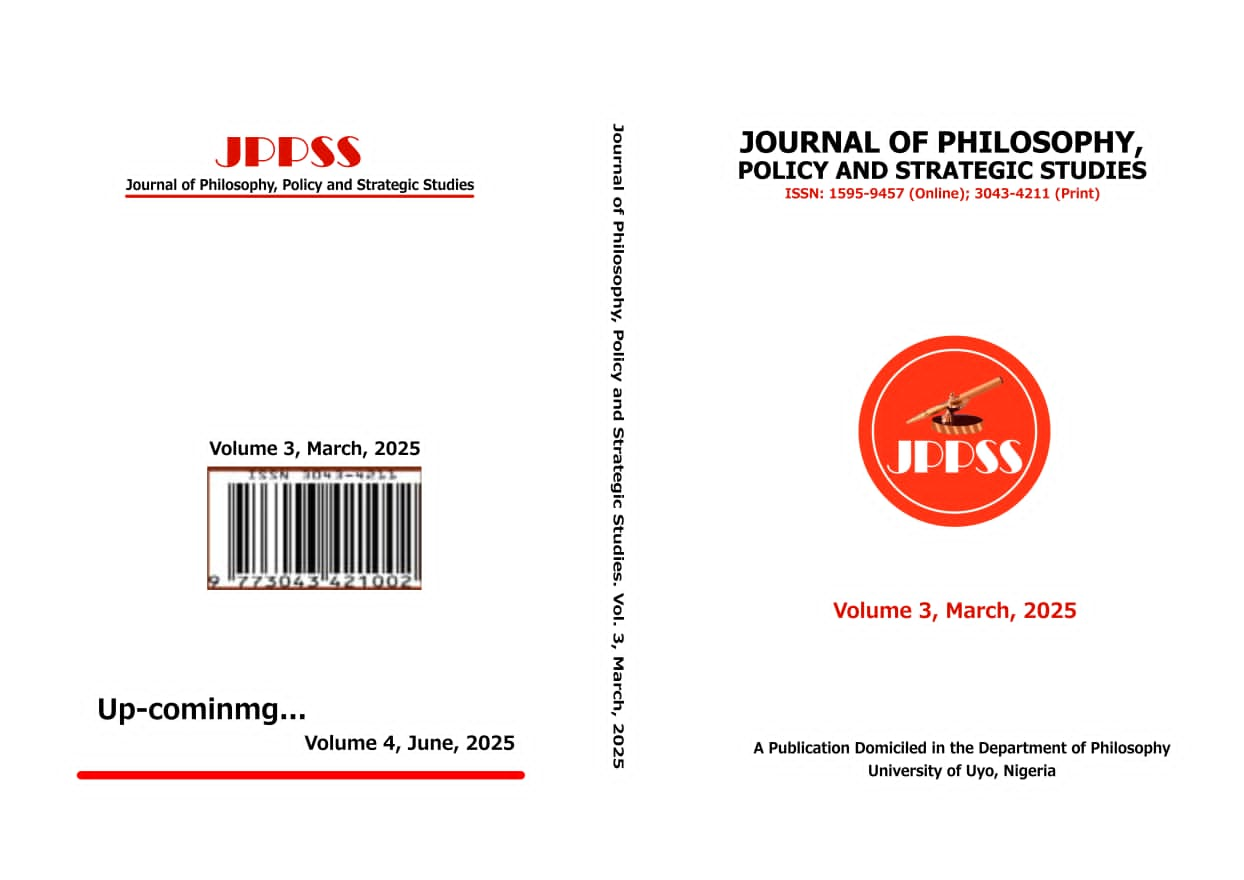HEIDEGGARIAN INTERSUBJECTIVITY AS A FRAMEWORK FOR CONFLICT RESOLUTION IN THE NIGER DELTA
By
Icomewell Ukpong Joseph
Department of Philosophy
University of Lagos, Nigeria
Abstract
Prompting this work is the crisis in the Niger Delta part of Nigeria which is seemingly unabated and unnecessarily prolonged. It is on this basis that the work embarks on the analysis of the theory of intersubjectivity in Heidegger’s hermeneutic phenomenology as a remedial foundation for addressing the Niger Delta crisis. The study argues that Heidegger’s hermeneutic phenomenology which is intersubjectivity oriented offers an alternative orientation of live and let live and a win-win mentality that can be harnessed to comprehensively resolve the crisis in the Niger Delta. The essential problem tackled in this study is the rigid and absolutist, top-down governance models that have typified Nigeria’s handling of the crisis which has not only heightened the problem but has likewise made the crisis in the Niger Delta persistent. Therefore, the basic objective of this work is to explore how the theory of intersubjectivity in Heidegger’s hermeneutic phenomenology which propagates human interconnectedness and promotes the themes of care, cooperation, and empathy can serve as a comprehensive instrument for ameliorating the Niger Delta crisis. To carry through this phenomenological analysis, the work uses Jim Unah’s multiculturalism as a theoretical framework; which serves as an anchor for Chiedozie Okoro’s Afa hermeneutic phenomenology that has been adopted as the methodology of the study. The significance of the theory of multiculturalism and the methodology of Afa phenomenology is that both are intersubjective in approach attained through the principles of duality, symbiosis, and complementarity. Both propagate the recognition of ‘differences’ in cultural identities which are meant to encourage an inclusive ontology that discourages rigidity, and absolutism and encourages interdependence. In essence, Heidegger’s hermeneutic phenomenology, Unah’s multiculturalism, and Okoro’s phenomenology of life-fore promote the orientations of intersubjectivity, inclusivity, and complementarity, which in turn encourage the temperament of live and let live. The findings of the study show that the continuous use of the rigid and absolutist system of top-down governance models that have typified Nigeria’s handling of the crisis will perpetually polarize the Nigerian State, the Nigerian State actors, and the people of Niger Delta. The study introduced an Afrocentric approach to the theory of intersubjectivity as an indigenous platform for resolving the Niger Delta crisis. Hence, the conclusion that the domestication of the theory of intersubjectivity would enable symbiotic and empathic understanding among the stakeholders in the Niger Delta. The study recommends the incorporation of inter-subjectivity into Nigeria’s educational curricula and administrative training programs. This could be done through the introduction of African intersubjectivity ethics which focuses on the relational nature of human existence, the interconnectedness of individuals within a community, and the ethical obligations that arise from these relationships, into the educational curriculum at all levels so that the attitude of humaneness and broad-mindedness would be properly inculcated. It would also help in fostering an understanding of relational ontology and the ethical imperative of inclusivity, as these initiatives can help in transforming the national ethos, promoting a culture of empathy and symbiotic coexistence.


